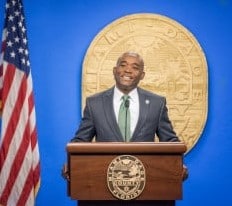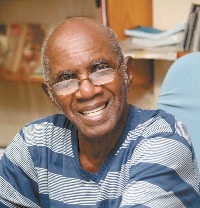Bahamian law enforcement officials complete seminar aimed at combating human smuggling and trafficking
NASSAU, Bahamas – Over 25 Bahamian government and law enforcement officials from six agencies and departments participated in a two-day training program on combating human smuggling and trafficking from April 21-22.
The seminar, held at the state-of-the-art Police Conference Centre, aimed to improve The Bahamas’ ability to recognize and fight human trafficking.
The seminar was sponsored by the U.S. Department of Homeland Security Immigration and Customs Enforcement (DHS/ICE) Attaché for the Caribbean, based in Miami, and the Human Smuggling and Trafficking Center (HSTC), based in Washington, DC.
The Bahamian and U.S. officials engaged in spirited discussions of crucial aspects of the struggle against “modern-day slavery” encompassing the development of legislation, how to assist victims, and the prosecution of traffickers. In welcoming remarks, U.S. Ambassador Ned L. Siegel thanked the participants and organizers, in particular the Ministry and RBPF, calling the event “yet another sign of our close cooperation in the common fight against trans-national crime in any form – whether guns, drugs, or people trafficking.”
The Ambassador called human trafficking “a multi-dimensional threat which deprives people of their human rights, constitutes a global health risk, and fuels organized crime. It is slavery in a new, modern-day form . . . [and it] requires a focused, multi-agency, international response on three fronts: prevention, protection, and prosecution.” The Ambassador pointed out that human trafficking occurs in countries on every continent, including the United States, and potentially The Bahamas as well, with people trafficked for prostitution or ‘exotic dancing,’ domestic servitude, or forced labor.
Every year in June the U.S. State Department issues a Trafficking in Persons Report assessing the extent of the human trafficking problem worldwide and the effectiveness of government efforts to prevent trafficking, protect victims, and prosecute perpetrators.
Representatives of the Royal Bahamas Police Force, the Royal Bahamas Defense Force, and the Department of Immigration, representing the Ministry of National Security and Immigration, joined officials from the Ministries of Foreign Affairs, Health and Social Development, and the Attorney General’s Office at the training session.



